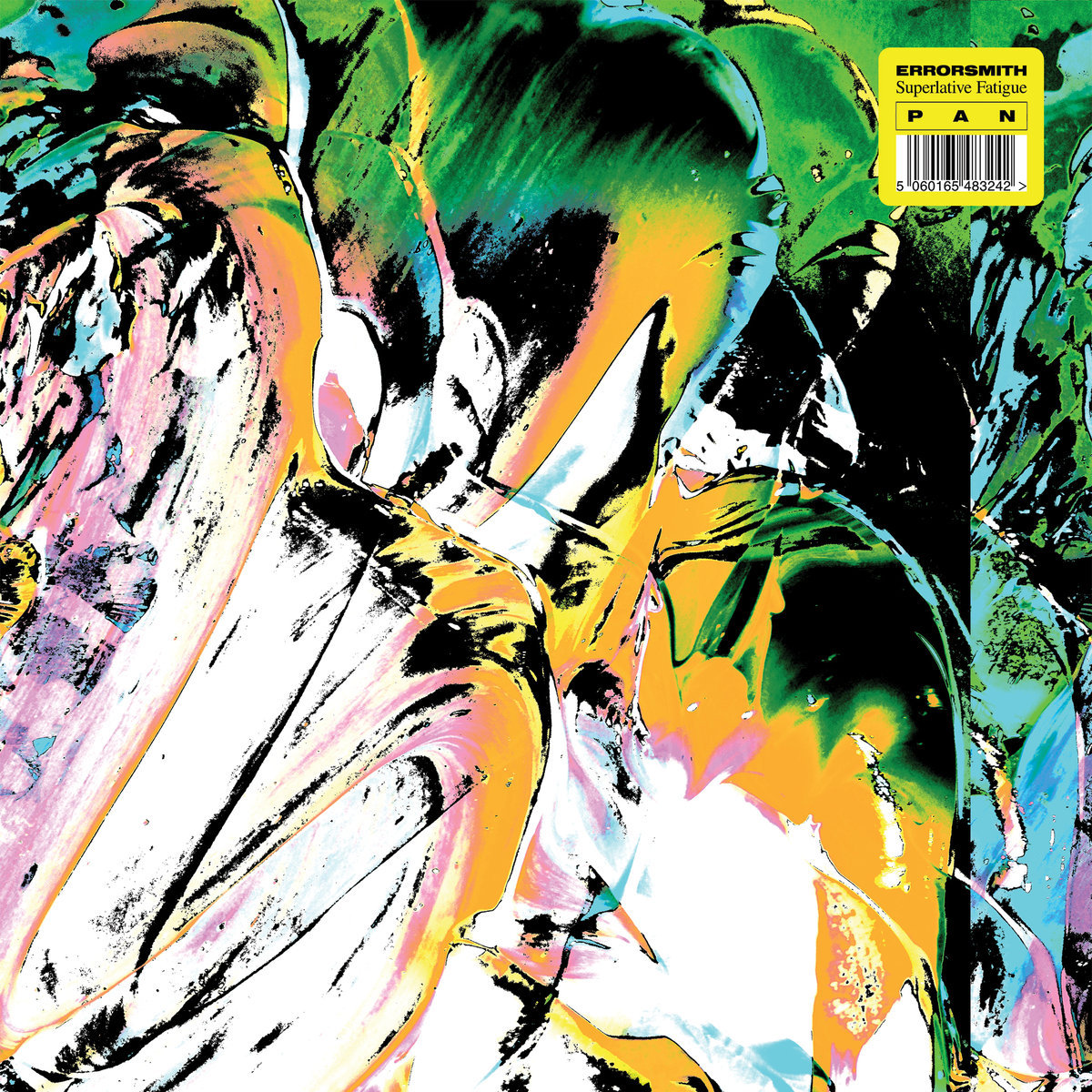Errorsmith:
Superlative Fatigue (Pan)
The
most noteworthy thing about Erik Wiegand’s first studio album in 15
years is, for all its weirdness, how much more accessible and fun it
is than his last one. 2002’s Errorsmith 2 seemed poised to build on
the dance music deconstructions of his 2000 debut, but it was a
lateral move into severity, with its strange rhythmic constructs
built largely around unusual flanged noises and stabs. With that in
mind, the opening bars of “Lightspeed” feel startlingly
conventional, with a bona fide regular drum loop laying the
foundation. It’s not long before the album’s sonic focal point
reveals itself, though; for this third album, Errorsmith’s sound is
all about synth voices that bend freely up and down while its
rhythmic underpinnings stay the course. In this sense it’s not so far
a departure from its predecessor in that it’s driven by the
singularity of approach, but the looping beats of Superlative Fatigue
lend it a more immediate accessibility, even if that’s challenged by
regularly disorienting moments like the climax of “Who-Is” or the
supersonic acid squeal of “I’m Interesting, Charming, and
Sociable.”
Superlative Fatigue by Errorsmith
After the maddening clatter that begins the album’s
superlative title track, it throws down a proper dancefloor jam with
a massive stabby bassline and dancehall loops that essentially
delivers on the riffs he teases across the front several tracks of
the album. Wiegand created the album using his own Razor synth,
developed and licensed to Native Instruments as an instrument
plug-in. It showcases both his chops as a software audio engineer and
designer as much as an enfant terrible in the music he creates with
it. “Retired Low-Level Internal Server” has all of the oompah and
stride of dancehall but filtered through his weirdo synth palette and
adorned with a wordless vocoder. I really like how he’s able to take
more regular meters in these tracks and then wander away from them
ony to snap back into formation. The synth leads and basslines (when
you can call them that) tend to feel less obliged to stay put, often
deviating from any conventional melody or progression and instead
only occasionally touching down enough to feel grounded at all, as is
the case with “Internet of Screws,” which precedes the goofy
closer “My Party,” wherein Wiegand claps, scats, and vocodes his
way through a near a capella epilogue that’s ultimately the cherry on
top of this weird confection of an album. But perhaps a sour cherry
that’s hard to swallow; its vocal encourages a smile, but it might be
the most annoying four minutes you’ll have experienced lately. I’m
curious to try his software out, though I’ve no doubt it might be a
challenge to recreate what he’s done here. Weigand’s strongest asset
is his bizarre aesthetic and willingness to forgo hooks or melodies,
instead opting to wander freely within loose constraints. Its punchy
beats are a noteworthy advance from the elastic-only approach of his
second album, and his oblique references to various dance music
trends are a welcome spin on his signature weirdness.
Buy it: Bandcamp


0 Comments